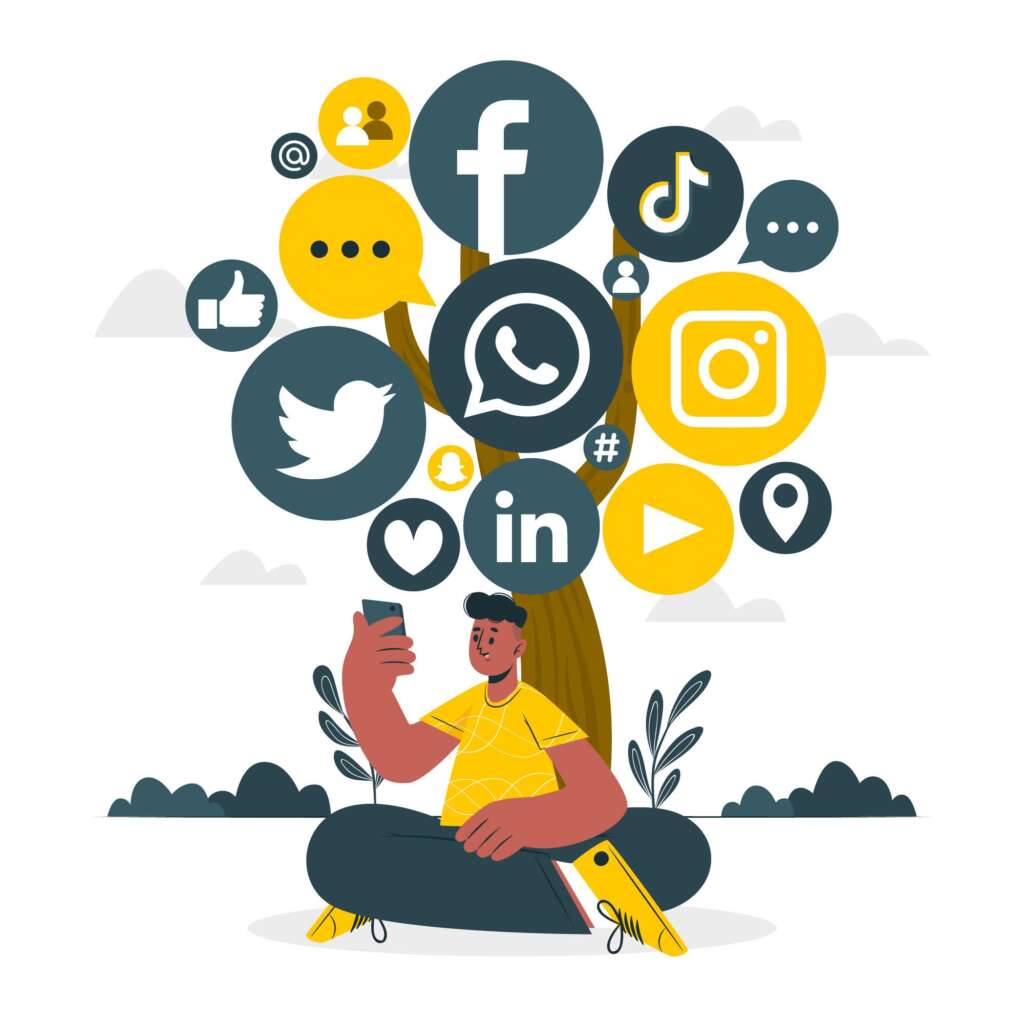Social Media is the new virus of a new era. We all are addicted to it. Social media is a ubiquitous part of modern life, offering instant communication and connectivity. Emotional intelligence—the ability to recognize, understand, and manage emotions in oneself and others—is a critical skill for personal and professional success. Unfortunately, the excessive use of social media can undermine this ability in profound ways.
This article delves into how social media negatively impacts emotional intelligence, supported by research, case studies, and actionable insights.

What is Emotional Intelligence?
Emotional intelligence comprises four key components:
-
- Self-awareness – Recognizing your emotions and their impact.
-
- Self-regulation – Managing your emotions constructively.
-
- Empathy – Understanding the emotions of others.
-
- Social skills – Building and maintaining relationships effectively.
The Connection Between Social Media and Emotional Intelligence
-
- Reduced Face-to-Face Interaction:- Social media has shifted communication from in-person interactions to online exchanges. Reduced face-to-face communication weakens the ability to read non-verbal cues like facial expressions and body language, a cornerstone of empathy and emotional intelligence.
-
- Superficial Relationships:- Social media fosters connections that are often shallow and transactional. Superficial relationships lack the emotional depth needed to build empathy and improve social skills.
How Social Media Platforms Undermine Key EI Components
-
- Platforms like Instagram and TikTok encourage users to compare their lives with curated, often unrealistic portrayals of others.This fosters a lack of self-awareness and dissatisfaction, as individuals focus on external validation rather than internal growth.
-
- Social media notifications and likes trigger dopamine spikes, creating addictive patterns of behavior.This undermines self-regulation as individuals struggle to resist the urge to check their devices constantly.
-
- Research from the University of Michigan found a 40% decline in empathy levels among college students since the year 2000, largely attributed to increased screen time and less face-to-face interaction. Anonymity on social media encourages harmful behaviors like trolling, reducing empathy for others’ feelings.
-
- Over time, this erodes verbal and emotional communication skills, essential for building lasting relationships.
The Role of Algorithms in Emotional Manipulation
Social media algorithms are designed to prioritize content that evokes strong emotional reactions, often negative ones. Controversial or polarizing content garners more engagement, leading to heightened emotions like anger and frustration. This constant emotional manipulation can reduce self-regulation and empathy over time.
Strategies to Protect Your Emotional Intelligence
-
- Limit screen time to 1-2 hours per day.
-
- Make time for face-to-face conversations with friends and family.
-
- Join clubs or attend events that encourage real-world connections.
-
- Meditation can improve self-awareness and self-regulation.
-
- Volunteer or participate in community service to connect with people from different backgrounds.
Social media is a powerful tool, but its overuse comes with significant drawbacks, particularly in the realm of emotional intelligence. By understanding how platforms impact self-awareness, empathy, and social skills, we can take steps to minimize harm and foster deeper, more meaningful connections.
Hope you have liked our article on Effects of social media on emotional intelligence and relationships, do share your thoughts.
References
-
- American Psychological Association: The Effects of Social Media on Communication Skills
-
- American Psychological Association: The Effects of Social Media on Communication Skills
-
- Pew Research Center: Teens, Social Media, and Technology
-
- Pew Research Center: Teens, Social Media, and Technology
-
- University of Michigan: Empathy Decline in College Students
-
- University of Michigan: Empathy Decline in College Students
-
- Royal Society for Public Health: Instagram and Mental Health
-
- Royal Society for Public Health: Instagram and Mental Health
-
- Cyberpsychology, Behavior, and Social Networking: Facebook and Emotional Intelligence
-
- Cyberpsychology, Behavior, and Social Networking: Facebook and Emotional Intelligence


